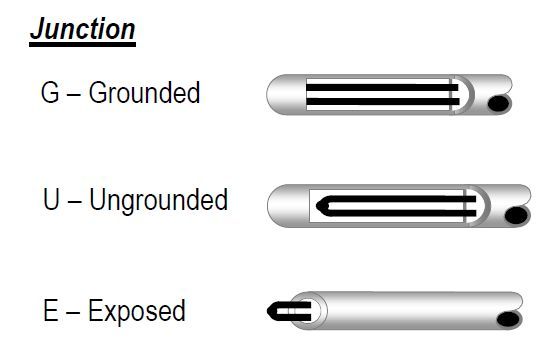Bryan Mayland
TVWBB Hall of Fame
I hand soldered in a AD8495 thermocouple chip into the included sub board. Success!

My thermocouple has the slowest dang response time, 10 minutes and it is still coming back to 70F from 100F (it came free with a PID unit so I didn't expect quality). Once it gets there, it reads less than a degree difference from my Thermapen, sometimes spot on. Now that I've got one assembled it makes me think I should have designed it differently so tell me what you guys think.
As it is now, the two big holes are the connections to the thermocouple. I designed it like this so it would sit on top of the existing jack holes and you could then use that jack to plug your thermocouple in. You'd cut the traces at the solder jumpers on the HeaterMeter v4.1 board then use the three other connections to attach 3.3V, Gnd, and output using some short jumper wires.
However, because thermocouples never come with 2.5mm mono jacks, I'm thinking it would make things easier to connect if I made the two big connectors output and Gnd, then used the 3 pin connectors for 3.3V and two connections to the thermocouple. This would mean no solder jumper cutting on the HeaterMeter board and you'd still run your two wires to a panel jack connector for the thermocouple.
For those who want to use thermocouples, does it make a difference?

My thermocouple has the slowest dang response time, 10 minutes and it is still coming back to 70F from 100F (it came free with a PID unit so I didn't expect quality). Once it gets there, it reads less than a degree difference from my Thermapen, sometimes spot on. Now that I've got one assembled it makes me think I should have designed it differently so tell me what you guys think.
As it is now, the two big holes are the connections to the thermocouple. I designed it like this so it would sit on top of the existing jack holes and you could then use that jack to plug your thermocouple in. You'd cut the traces at the solder jumpers on the HeaterMeter v4.1 board then use the three other connections to attach 3.3V, Gnd, and output using some short jumper wires.
However, because thermocouples never come with 2.5mm mono jacks, I'm thinking it would make things easier to connect if I made the two big connectors output and Gnd, then used the 3 pin connectors for 3.3V and two connections to the thermocouple. This would mean no solder jumper cutting on the HeaterMeter board and you'd still run your two wires to a panel jack connector for the thermocouple.
For those who want to use thermocouples, does it make a difference?


